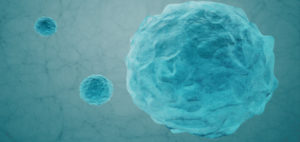
If you suffer from an autoimmune disease, your immune system is over reacting and you experience symptoms. There are many factors that can trigger an auto immune condition – stress is a big one and we are not paying attention to it. Nutrition is obviously important because it maybe cause vitamin and mineral deficiencies as well as change your microbiome and the environment play a role (your daily exposure).
We now know a little more about how the T-helper cells work within the immune system and how an imbalance ( again!) can trigger symptoms. There are T-helper cells 1 – 2 and 17
What are Th1, Th2, Th17, Th22?
T-helper cells play a major role within the immune system. They are white blood cells (lymphocytes) that recognize invaders (pathogens), but sometimes, or in the case of autoimmune disease, normal tissue. In response to this recognition, they produce cytokines, which are hormonal messenger proteins that are responsible for the biological effects of the immune system. The two major ones are Th1 and Th2:
Th1 cells are involved in “cell-mediated” immunity, They are the body’s first line of defense against pathogens (infections by viruses and certain bacteria for example). They cause chronic inflammation and are involved in the development of organ-specific autoimmune disease.
Th2 cells are involved in “humoral-mediated” immunity, They normally stimulate the production of antibodies. They don’t cause inflammation but they are involved in systemic autoimmune disease.
When your immune system function properly, both groups of these T helper cells keep the system balanced. However, it can becomes a problem.
In some people with autoimmune disease, patterns showing a dominance to either the Th1 or Th2 pathway have been shown. Although there are exceptions, the following table shows the conditions that are most commonly associated with a Th1 or Th2 dominant state:
TH1 dominant conditions:
- Type I diabetes
- Delayed food allergies
- Guillain-Barré syndrome
- Multiple sclerosis
- Hashimoto’s Thyroiditis
- Grave’s Disease
- Crohn’s Disease
- Psoriasis
- Sjoren’s Syndrome
- Celiac Disease
- Lichen Planus
- Rheumatoid Arthritis
- Chronic viral infections
- Post infection
TH2 dominant conditions:
- Lupus
- Allergic Dermatitis
- Scleroderma
- Atopic Eczema
- Sinusitis
- Inflammatory Bowel Disease
- Asthma
- Allergies IgE
- Cancer
- Ulcerative Colitis
- Multiple chemical sensitivity
- Hay fever
- Excess histamine
- GERD
When the th1 cells of the immune system are overactive, they take over and suppress the activity of Th2. This list is not 100% accurate. Some people with Lupus could be Th1 or Th2. There are conditions ( pregnancy for example) that could switch system. You can also have Th1 and Th2 overactive or underactive at the same time… not fun symptoms.
Can we do something about it?
Absolutely.
It is better to work with a healthcare professionals who can order testing and give you a personalized protocol.
The overall condition of people with Th1 dominance tend to have more negative symptoms and more difficult to treat. Th2 dominance is often related to food or environmental allergies so avoidance is a big help but in Th1 dominance, this isn’t the case.
Protocols to lower Th1 dominance could be:
- Lectin avoidance
- Intermittent fasting
- Improve sleep pattern
- Fish oil, curcumin, black seed oil, CBD oil etc..
Protocols to lower TH2 dominance could be :
- Cold therapy
- Probiotics ( specific type)
- Licorice, ginger, Quercetin, coffee
- High intensity exercise
- Inhibiting Mtor
But what about Th17 and Th22?
We don’t know that much about them just yet. They were recently discovered recently discovered subset of effector memory T cells. Th17 cells play a critical role in the induction of the tissue inflammation and destruction and maintain mucosal barriers ( the gut liner!). It helps in clearing pathogens out of our mucosal surface. Several studies indicate that Th22 cells may be involved in the pathogenesis of inflammatory skin disorders such as psoriasis, atopic eczema, allergic contact dermatitis etc.
Going back to what’s good for me may not be good for my neighbor. It appears the consumption of vitamin D3 suppress the activity of Th17 and remember, the goal of these cells are to protect your mucous barrier.
Balancing the immune system may seem a little tricky but if you know your body very well, you’ll feel the effect of a shift. It’s important to act quickly to calm down the inflammation and/or discomforts.
Comments
- Donald Trump le sauveur! - 2020-11-04
- Prison Angola – PAH 2016 - 2020-10-05
- Your Helper T cells - 2019-01-05
